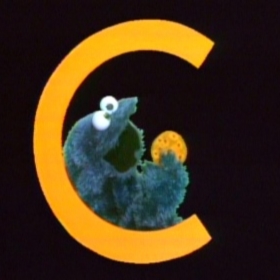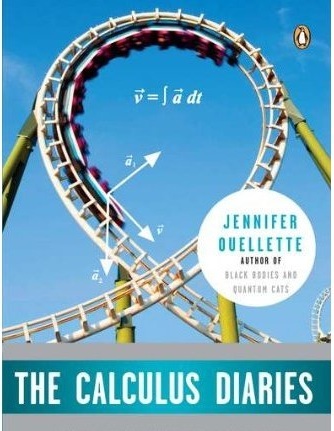Leap Day Bonus Post
Hello gentle reader. This week is a bit hectic for me, so I don't have time for a proper update. But what with it being Leap Day and all, I thought it only appropriate to share some kind of gift with you.
If you have the time, below is an excellent documentary from the 90's on Fermat's Last Theorem and Andrew Wiles, the man who set his sights on proving it. It's a great documentary, and may have somewhat blown my mind when I first saw it as a high school student. So take some time out from your Leap Day (it is a bonus block of 24 hours, after all) and check it out!
Interview Roulette
Recently I started reading How Would You Move Mount Fuji?, a 2003 book written by William Poundstone on the history and popularization of the puzzle-focused job interview. The presence of logic puzzles or seemingly unanswerable questions was once a staple of many job interviews in Silicon Valley, and while the book is much more than just a laundry list of good puzzles, it's hard to write about puzzles without giving some juicy examples.
Today I'd like to talk about one of the earliest puzzles discussed in the books, and show how one can pretty quickly poke and prod this brain teaser until it becomes a different beast entirely. Here it is, with wording taken from the book:
"Let's play a game of Russian roulette," begins one interview stunt that is going the rounds at Wall Street investment banks. "You are tied to your chair and can't get up. Here's a gun. Here's the barrel of the gun, six chambers, all empty. Now watch me as I put two bullets in the gun. See how I put them in...
Are the 49ers skilled, or just lucky? Part 2.
In my previous post, I asked whether the San Francisco 49ers' improbably successful season was due more to luck (say, by being granted a relatively easy schedule), or due to real improvements in the skill of the team. By comparing the 2011 season with the 2010 season and correcting the schedule for the number of wins and losses each team accrued, I concluded that the level of difficulty of the team's schedule year over year was roughly the same, and therefore more of their success should be attributed to skill rather than luck.
In this follow-up, I'd like to dig a little deeper into measurements of the 49ers' skill, in an attempt to further bolster the above claim. If you are a football fan, then you are fortunate to have me write two football-themed posts in a row. If you are not a football fan, fear not; with the season having come to a close (I begrudgingly offer my congratulations to the New York Giants), I will move on to new topics after this.
There are a number of ways one...
Are the 49ers skilled, or just lucky?
Fans of the two football teams who face off in the Super Bowl will no doubt spend the weekend filled with nervous anticipation - hopeful that their team will emerge victorious, but certain of the knowledge that there can only be one champion. For the rest of us, we must hang our heads with relative degrees of shame, and bide our time until the next season brings with it the promise of new opportunities for all 32 NFL teams.
For a San Francisco 49ers fan like myself, most of the last decade has been spent in a fairly constant state of disappointment. But after ten years without a playoff appearance, the team blossomed this season under the influence of new head coach Jim Harbaugh, and came within one game of their first Super Bowl appearance since 1995.

This poster hangs proudly in our apartment.
Despite a great season, in which the team won 13 of their 16 games for the first time since 1997, many people have still voiced doubts about whether or not this team is for real. What if...
Lego Math Maniac
Though I have lived in Southern California for several years, I have never been to Legoland, a theme park based around the classic (and awesome) children's toys. The park perennially sits in the shadow of more popular parks in the region (e.g. Disneyland, Universal Studios, and the Banana Club Museum), and its prices make it hard to justify a visit for an adult male with no children, no matter how many fond Lego memories he may have from his childhood. However, given the recent attention Lego has received in the context of mathematics, it may be time to finally plan a trip.
A recent article on Wired's website discusses the mathematics of Lego - more specifically, it highlights an article on the complexity of Lego systems. As any child will tell you, Lego sets can vary from very simple, small sets, to much larger and more complicated ones. As a simple corollary, smaller sets will have fewer pieces, and larger sets will have more pieces. But how does the number of types of pieces...
Car Talk Mathematics
Happy 2012! I hope you all has a restful and calorie-filled holiday. For my part, the holidays typically involve a fair amount of driving, and ergo, a fair amount of listening to podcasts. To that end, I'd like to ease into a new year of mathematics by considering a simple puzzle, one which was featured recently on NPR's Car Talk. If you are not fortunate enough to have listened to this show, it centers on two brothers from Cambridge, Massachusetts, affectionately known as Click and Clack, the Tappet Brothers (though their real names are Tom and Ray Magliozzi). Each week, in between a fair amount of good-natured banter, the brothers field a variety of automotive questions from callers nationwide.

Even XKCD is on the Car Talk bandwagon! (Click the image to go to the source.)
Most significant to our present discussion, however, is Car Talk's weekly diversion known as the Puzzler. Each week, the brothers read a Puzzler (i.e. a brain teaser) to their listeners and request solutions...
Two Cups of Mathematics
With the holidays in full force, many of you are no doubt spending time in the kitchen; those of you who aren't are nevertheless reaping the benefits provided by those who are. 'Tis the season of baked goods, and if you are lucky enough to have a family member who knows how to bake, then for the month of December you will eat like a king.

This dude knows a thing or two about baked goods.
For my money, the best part of the baking process (aside from the delicious final act) is the careful and precise initial measurement of the ingredients. Keeping an accurate account of the relative proportions of each piece of the recipe is a hallmark of baking, and reflects the nature of baking itself: one part art, one part science. Unlike some other culinary arts, the measurements really do matter. Screw up these proportions and those fudgy brownies you want to make will be too cakey (or vice versa).
But what in the recipe accounts for the qualitative differences we see and taste in the wide...
An Introduction to Pumpkin Chunkin'
In a recent episode of ABC's Modern Family, Cameron and Mitchell (the show's unambiguously gay duo) are with some friends talking about Thanksgiving when Cameron decides to tell a story from his youth which, in his opinion, is quite compelling. Mitchell knows better, but doesn't have the heart to tell him that this particular story suffers from some basic structural flaws. As Mitchell puts it, the story can be summarized as follows: "Once Cam and his friends tried to slingshot a pumpkin across a football field. Three seconds. That's all you need to tell that story."
Needless to say, Cameron's version of the story is much more embellished. In his rendition, their experiment was a success; as he puts it, the pumpkin flew across the field, "goal post to goal post."
When I first heard him say this, my initial thought was "Is Cameron telling the truth?" How likely is it that a pumpkin, launched from a slingshot at one end of a football field, could sail through the air to land on...
The Calculus Diaries
As the holiday season begins, I recently felt compelled to read through a gift I received over the holidays last year, a book called The Calculus Diaries. Written by English major Jennifer Oullette, who, by her own admission, had to overcome a not uncommon fear mathematics to write it, the book attempts to do what any reasonable Calculus course ought to do, but in front of a larger audience: convince the reader of the universal applicability and beauty of the subject.

Unlike most Calculus textbooks, however, Oullette's book has an extra helping of sympathy for its audience. Oullette's goal is not necessarily to make her readers expert mathematics students; instead, she focuses on unifying seemingly disparate types of problems under the umbrella of Calculus. Included amongst these examples are applications of Calculus to the equations of motion, thermodynamics, surfing, and the spread of disease. The wheel is not being reinvented here - most of these examples (with the possible...
11/11/11. Great.
To the question making the news circuit today ("Does today's date have any special significance?") I believe an article at Scientific American provides the most compelling answer: no. Not only does the article brush aside suggestions that this day might have some deeper meaning, but it also spends some time discussing why such numerological curiosities capture our collective imagination to the extent that they do. If you only read one article about 11/11/11 today (or two, I suppose, since you're already reading this), let it be that one.
If you are a masochist like me, though, there are plenty of ridiculous articles floating around today to help you get your blood boiling. One of my favorites comes from today's Philadelphia Inquirer. It's full of gems like:
- One may be the loneliest number, [La Salle University math teacher Stephen] Andrilli said, but 11 ranks among the most odd - and not just because it isn't even. He sees 11 as sort of a netherworld number - one more than...
Page 5 of 20

